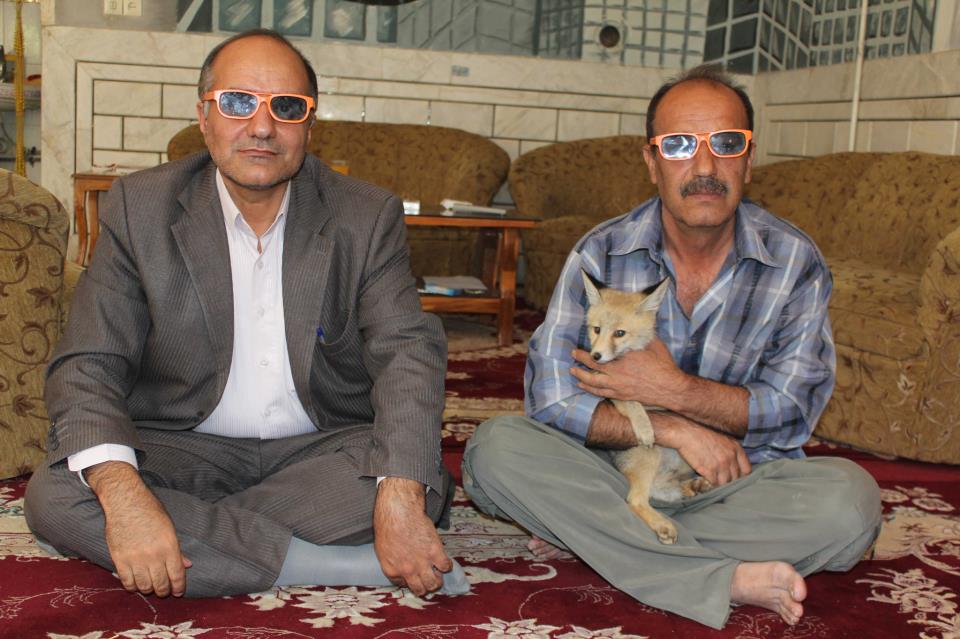
Directed & Written by Arash Lahooti
Iran, 2013
There is no denying the role other animals have played in fueling our species’ dubious ascent to world mastery. We have eaten them, competed with them, ridden them, made deals with them and yoked them to the plow. It is, to put it mildly, a tragic record of unchecked instrumentalization – and of course, with the advent of factory farming, it’s only getting worse. But the story does not, by any means, end there. Because even the most business-minded butcher is likely to have a canine friend, a fond childhood memory of Free Willy, or perhaps just a nursery full of teddy bears. One way or another, animals have captured humanity’s collective imagination – and been captured by it in turn. Trucker and the Fox explores that strange and extraordinarily complex relationship with unflinching candor.
The film opens in an Iranian hospital, where acclaimed short subject director and career truck driver Mahmood Kiyani Falavarjani is recovering from the crippling depression which took hold of him after the death of his beloved fox. The soft spoken man regales his psychologist and fellow patients with tales of the lost pet’s beauty and engaging personality – but in one telling scene he swells with pride when describing his efforts to bend a supposedly untamable being to his directorial will (Kiyani’s films generally feature non-human protagonists). Lahooti’s intimate camera skillfully takes us into the subjective experience of a man whose existence (or, at least, his psychological well-being) literally depends upon the maintenance of very specific types of relationships with animals. For the majority of the film’s running time, we (along with Kiyani’s long-suffering wife) bear witness to the newly-released man’s efforts to rebuild his life via the creation of a new “donkey romance”. The director’s casting call echoes forth across the countryside as he seeks the actors he needs. He finds his donkeys easily enough, on a nearby farm – but the script also calls for two other creatures who will play blocking roles in his star crossed barn romance (a crow and a fox). The final two additions to the roster prove more difficult to find. In the meantime, Kiyani sets about filming a number of sensitively imagined donkey POV shots, but he knows this footage will be worthless if he cannot secure the services of a fox.
During the course of his pathological quest for a new vulpine companion, Kiyani even looks into buying a previously domesticated animal. Unable to pay the dealer’s price, he attempts (without effect) to get some currency out of the fact that he intends to make “cultural use” of his prize. This telling phrase recurs often in the film – and provides a key to understanding the documentary’s ambitious design. How are we to reconcile the overpoweringly tender feelings that animate Kiyani’s films with the aggressive trapping and training practices which make them possible? How does the sight of this kindly man kissing and caring for a fox that he must carry around by the throat help us to interrogate our own never-simple dealings with the animals who bring such joy and contentment to our lives? Does violence lurk in the most loving precincts of the human heart and mind?
Trucker and the Fox made its world premiere at the TIFF Lightbox Theatre on April 26. It will show again at the Scotiabank Theatre on April 28 (4 pm).
Consult the complete Hot Docs Festival schedule here.

